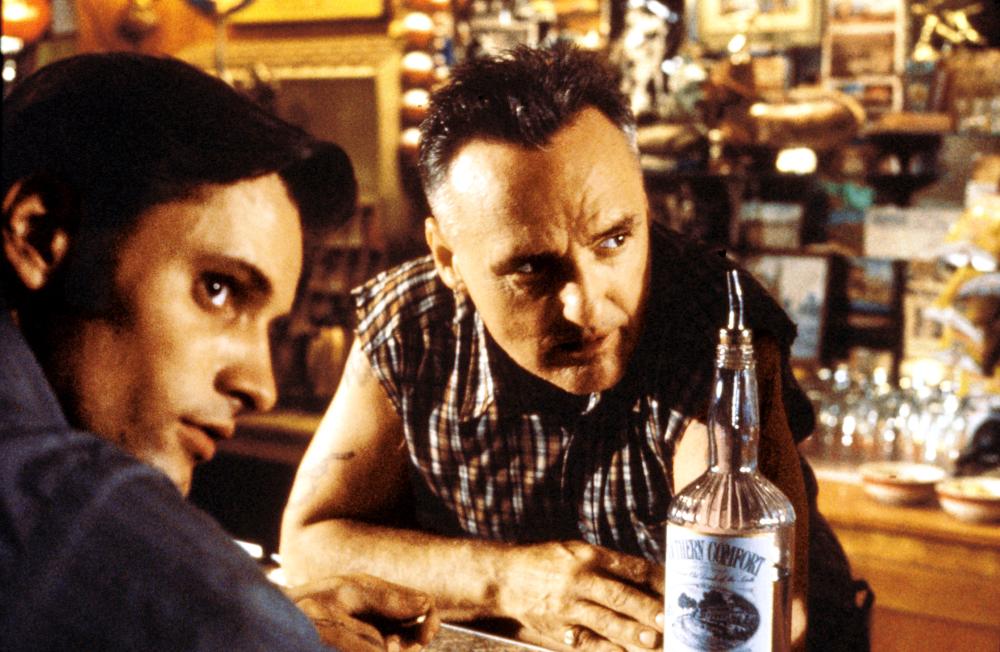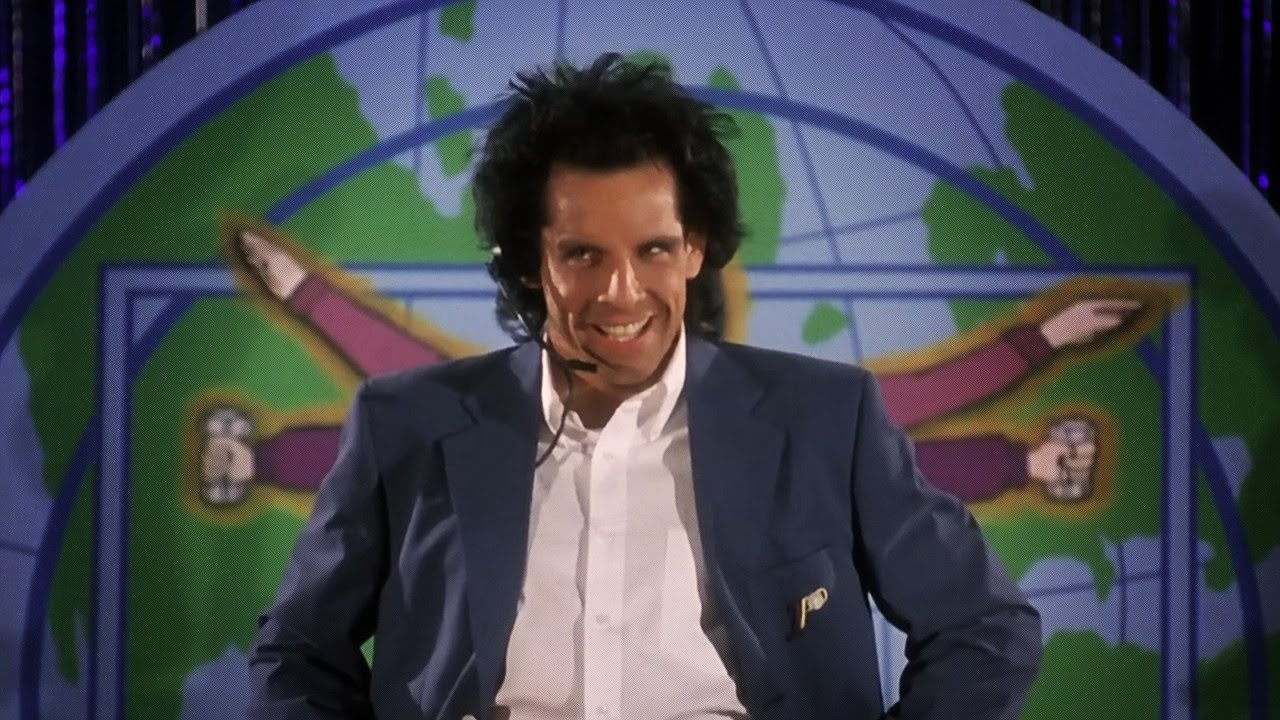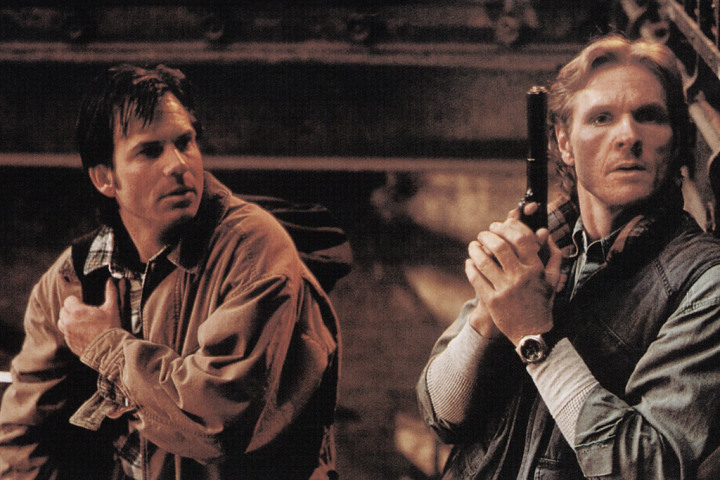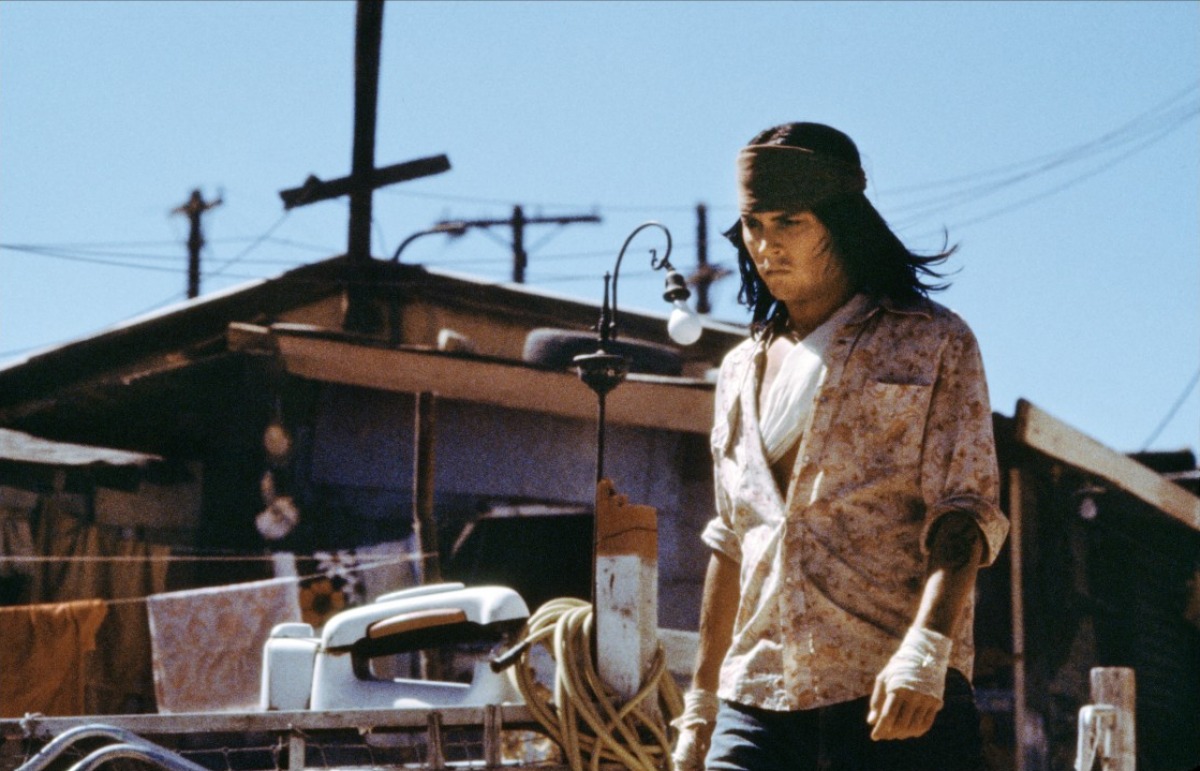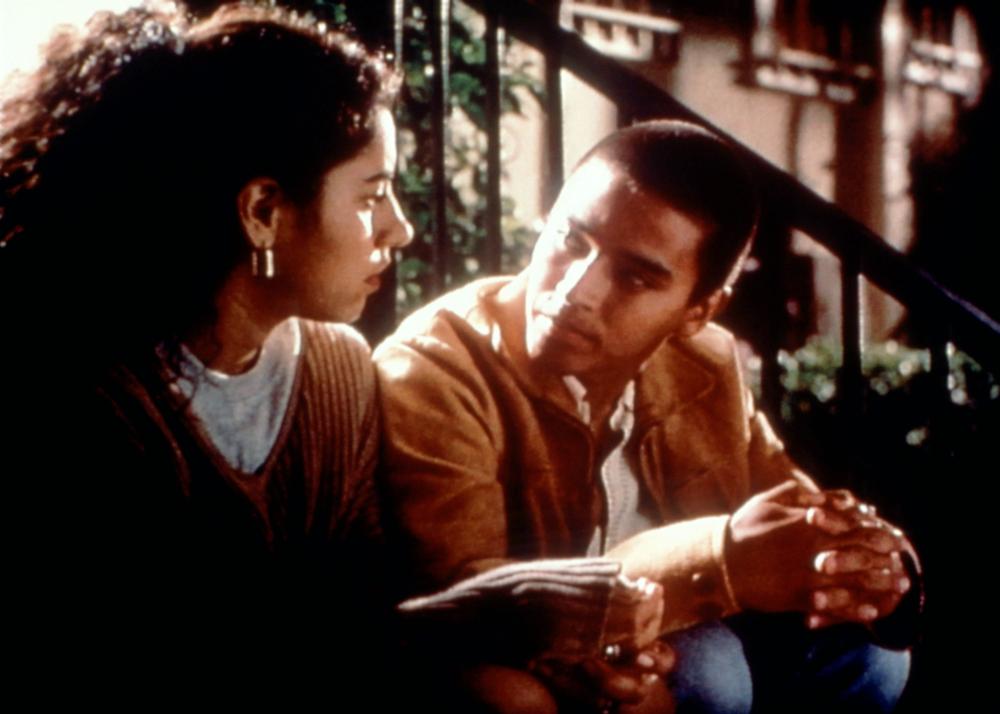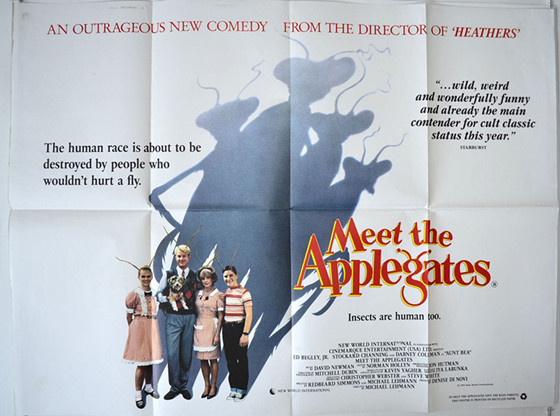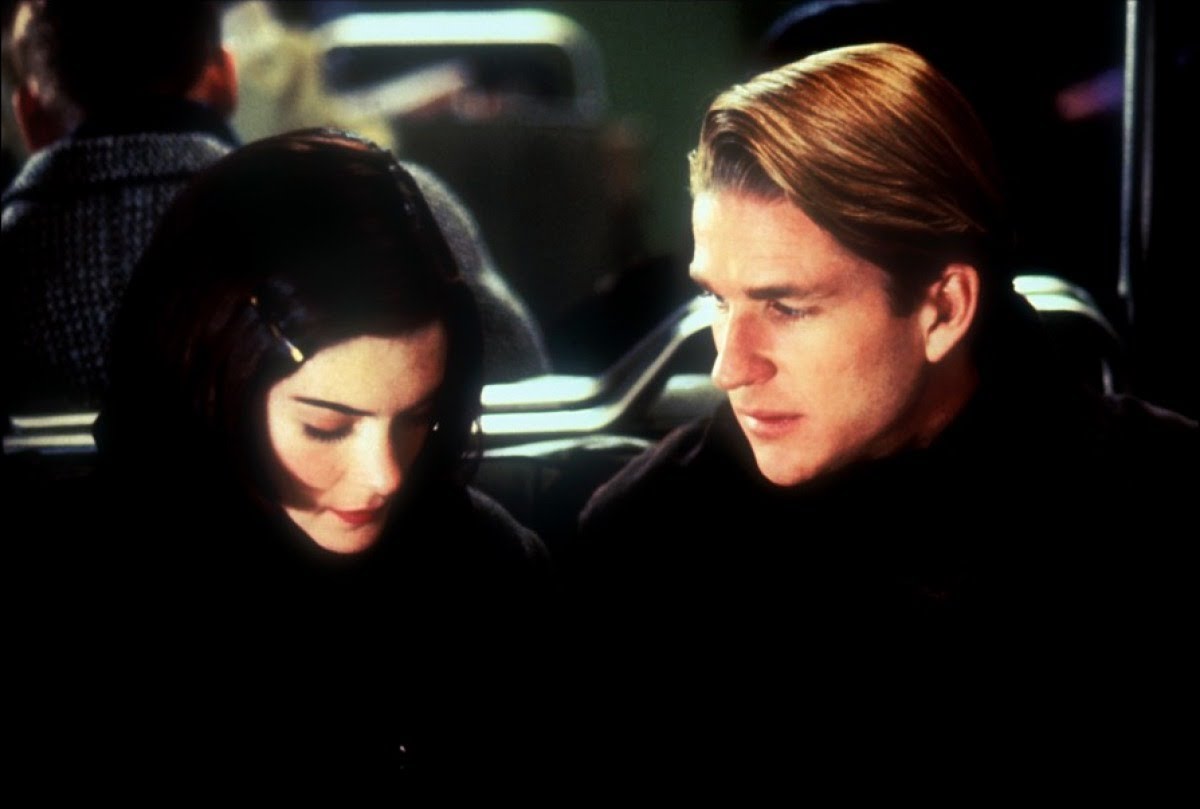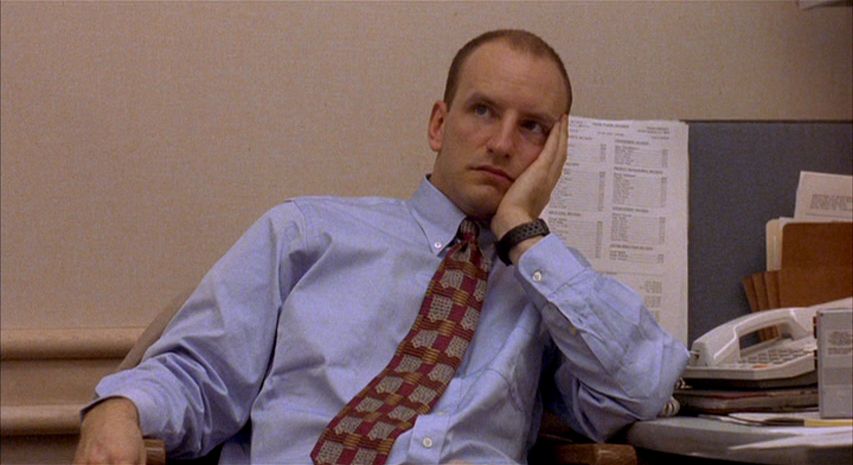20. The Indian Runner (1991)
Sean Penn’s debut as a writer and director, while a tad heavy-handed at times, is, overall, a thoroughly beautiful and wonderfully acted story of a troubled Vietnam veteran (Viggo Mortensen) who returns home but finds he can’t fit into his former town or the values his brother (David Morse) upholds as its deputy sheriff.
Penn “borrows” from such cinematic greats as John Cassevetes and Terrence Malick in his character-driven and poetic depiction of the shadier sides of small-town America. Penn ultimately makes the film his own, however, and succeeds in creating a very haunting and human story about a terminally flawed and broken man (Mortensen, in an intense and honest early performance) whose inescapable nature is to test and inevitably destroy every gift life brings his way.
19. Heavy Weights (1995)
Heavy Weights, about a group of overweight children trying to survive a dangerously intense summer camp regime designed for weight loss, is one of the most gleefully dark but strangely accessible children’s films to be released by a major studio in the nineties (or, frankly, ever). This is largely thanks to Ben Stiller’s demented and comically genius performance as the camp’s counselor, Tony Perkins.
In Perkins, Stiller created a sadomasochistic and darkly absurd view of nineties masculinity that would have been an instant classic with audiences if the film that housed it wasn’t geared towards twelve-year-olds. As it stands, however, Heavy Weights remains a wholly underappreciated and under-known effort that holds some wonderful surprises, even for today’s jaded and over-exposed film-going audience.
18. Trespass (1992)
Walter Hill’s St. Louis-set thriller, about a couple of firefighters searching for buried treasure in an abandoned building only to find themselves in the middle of a gang war, was a welcome piece of noir filmmaking at the time of its release. Out of place even then, Trespass is the kind of dark morality tale that would have found its best audience in the late-seventies, but has sadly, today, never quite gotten the attention or praise it deserved.
While some (it feels) forced nineties style embellishments hinder the film’s greatness, there is plenty of quality in both the filmmaking and the lead performances (Bill Paxton, William Atherton, Ice Cube, Ice T) that will always make it stand out as something bold, interesting, and terribly underrated.
17. The Brave (1997)
Johnny Depp’s one-and-only directorial effort to date has never had an official release in America. Widely panned after its premiere at the Cannes festival, this film was quickly buried and forgotten by everyone but Depp’s most thorough fans. Exceedingly dark, The Brave is a troubling story about a poor Native American man (Depp) who agrees to give his life for a “snuff” film in exchange for a healthy payment to his surviving family.
Marlon Brando, in one of his last performances, has a disturbed presence as the producer who eerily seeks out Depp’s “services”. Depp is a solid force behind the camera, and makes some very bold (and often highly creative) choices that leave one wanting more from the promising but inexperienced filmmaker.
The Brave is about as dark as they come, but it is a fascinating film that is so uncompromising it almost feels like it shouldn’t exist. While it may currently be hidden, it most certainly does exist and is worth tracking down, if for no other reason than to see a very bold experiment from one of the most interesting and talented actors of our time.
16. The Dark Backward (1991)
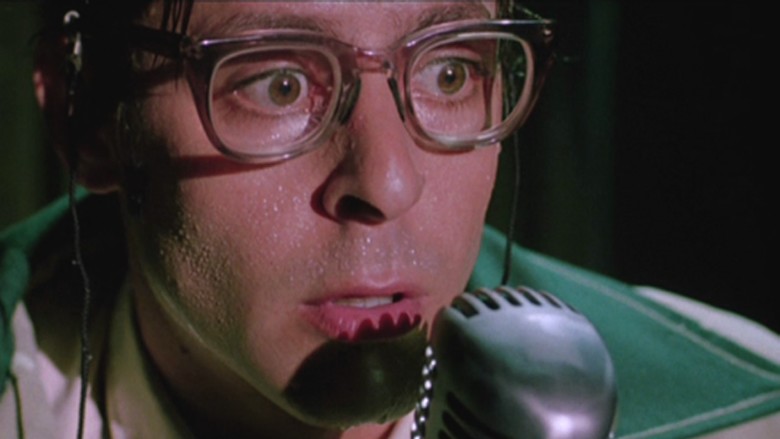
In a slightly “off” parallel universe, writer-director Adam Rifkin’s film would have struck a similar chord with popular culture that Quentin Tarantino’s Reservoir Dogs did nearly a year later. The two films and filmmakers are nothing alike, except for the mere fact that both Dogs and Backward feel like “best-of” compilations of great films in similar categories that came before them (and that is meant as nothing but a compliment).
Dogs, however, was paying homage to such cinematic masters as Scorsese, Kubrick, and John Woo, while Rifkin’s film seems to have been conceived entirely in the gutter and under the influence of John Waters, early David Lynch, and pretty much any other grotesque cult movie from the “Midnight” seventies scene.
The Dark Backward is overall successful in both celebrating and capturing the spirit of a “cult” film. No one quite knew what to make of it when it was released, and it was almost universally written off, save for a very small and loyal fan base.
As a result, the complete ingenuity of the premise (a terrible stand up comic finds success when a hand starts growing out of his back) and the skilled absurdity of its execution were ignored. The Dark Backward isn’t a particularly nice or pleasant film, but it is something worth checking out when you’re in the mood for something twisted, strange, and grotesquely hilarious.
15. Star Maps (1997)
Before his career was jumpstarted with the fantastically dark Mike White-written pair of films Chuck & Buck and The Good Girl, the underrated but always interesting filmmaker Miguel Arteta released this down and dirty indie. Star Maps centers about a young Hispanic man trying to make it in Hollywood while working as a male prostitute (at his father’s insistence, no less) on the side. Dark and memorable,
Star Maps is an interesting and fresh take on the painful process of disillusionment that one will inevitably experience while trying to make any dreams centering around Hollywood come true.
14. Meet The Applegates (1990)
The sophomore effort of two-thirds of the dream team behind Heathers (producer Denise Di Novi and director Michael Lehmann, minus screenwriter Daniel Waters) was completely lost upon everyone when it was released at the start of the nineties.
Unfortunately, it has pretty much remained that way to this day, save for a small cult following presumably gained by the film’s repeated cable showings throughout the nineties. All that being said, comparing Meet The Applegates to Heathers is unfair, as it is its own intelligent and unique piece of satire on life in American suburbia.
Lehmann’s gift for translating and presenting dark absurdity onscreen is on full display in the film, which happens to be about a group of giant preying mantis’ trying to hide out in middle-American suburbia (proof that every idea has, indeed, not been done before). As silly and downright weird as things get, the film is anchored by Lehmann’s skill and by the talent of his excellent cast, particularly the always-brilliant Ed Begley, Jr., Stockard Channing, and Dabney Coleman.
Meet the Applegates is an original, ambitious film that admittedly does fail here and there with some of the risks it takes. Somehow, however, it still manages to be predominately successful and admirable throughout its efforts to keep things interesting and different.
13. If… Dog… Rabbit (1999), Equinox (1992) (tie)
For those of us who are old enough to remember and presently cool enough to notice, Matthew Modine is (and has been for years) one of the most interesting, reliable, and complex film actors around. He has the type of trustworthy onscreen presence that automatically implies quality and integrity, but is also far too quirky and slightly too odd to peg down as any one type of leading man.
The eighties were pretty great to him (Birdy, Vision Quest, Full Metal Jacket, Married to the Mob), and the nineties saw him take a number of risks on primarily interesting projects that, unfortunately, never made much of a lasting impact with critics or audiences. Equinox, directed by the brilliant and under-respected Alan Rudolph, is a prime example of this.
Strange, atmospheric, and almost noir-like, the film has Modine playing twin brothers who were separated at birth. One is painfully shy and meek while the other is a hard-boiled gangster. Modine slips into both roles with ease as the film follows the siblings’ separate stories until they inevitably intertwine.
If… Dog… Rabbit is Modine’s widely unheard of directorial debut. Contemplative and character-driven, the film was (unwisely) given the generic title of One Last Score for its American release. While that title suggests a gnarly crime saga, it misrepresents the heart of the film, which is about an ex-con (a very subtle and believable Modine) who is unable to avoid being dragged back into a life of crime by his criminal brother and father (played by the great John Hurt in a sadly unknown performance).
Misrepresented as a cool Tarantino-esque heist flick, If… Dog… Rabbit, like many of Matthew Modine’s most interesting works in the nineties, never got the opportunity it needed to appeal to the intelligent, adult audience for which it was made.
12. Nil By Mouth (1997)
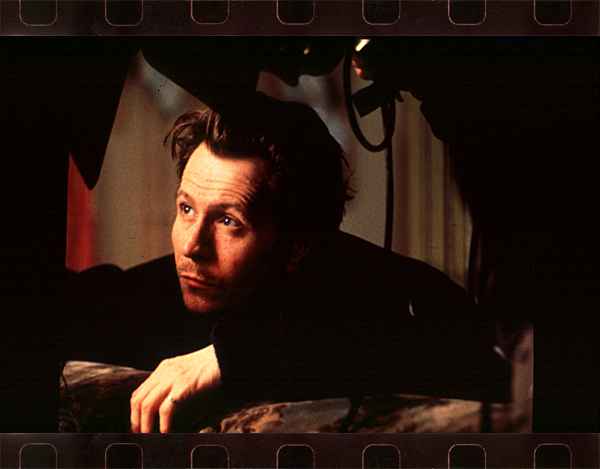
Gary Oldman’s brilliantly (and uncompromisingly) executed directorial debut is a dark, intense film that, while tough to digest, will manage to linger in your DNA long after it’s done.
Set in working class London, the film is a downright painful look at addiction and poverty, as it follows the lives and relationships within a dysfunctional family ruled by rage and alcoholism. A predictably (and often unsung) great Ray Winstone somehow manages to stand out amongst the completely stellar ensemble cast.
11. Kafka (1991), King of the Hill (1993), Schizopolis (1996) (tie)
Steven Soderbergh, after hitting it big in his mid-twenties with his Cannes-winning feature debut, Sex, Lies, and Videotape, both lost and regained his mojo in the nineties. With his two follow-ups to Videotape, King of the Hill and Kafka, Soderbergh discovered that the experimental stories he felt most at home making just weren’t what the public wanted.
Kafka was a fictionalized, black-and-white drama that tried to show the world who the famed writer was in his own, nightmarishly surreal voice and style. Hill is a Depression-set story about a young boy who has to learn to care for himself and cope with the effects while spending most his time alone in a run-down hotel.
Needless to say, audiences didn’t flock to Soderbergh’s daring cinematic experiments. So, he attempted to make a Hollywood thriller (The Underneath) and got so bored he considered quitting filmmaking entirely. To save himself, he then decided to let his unconscious completely explode with the wild, weird, and loosely made experimental film, Schizopolis.
Impossible to define, describe, or categorize, Schizopolis is Soderbergh’s answer to a career slump: put a bunch of ideas into a blender and let them form as they will. The result is an insane and invigorating film experience that is as certifiable as it is ingeniously crafted.
These three films are worth checking out not only because of their individual quality, but also because of the importance they had in developing the career one of the most influential and known filmmakers of our time.
Whatever feelings you may have about Soderbergh’s eclectic body of work, he deserves to be commended for never allowing himself to fall into boredom, and for always pushing boundaries in his storytelling. Sometimes he failed, sometimes he succeeded, but Soderbergh never lost the desire or the need to experiment and for that, he has always managed to stay fresh.
